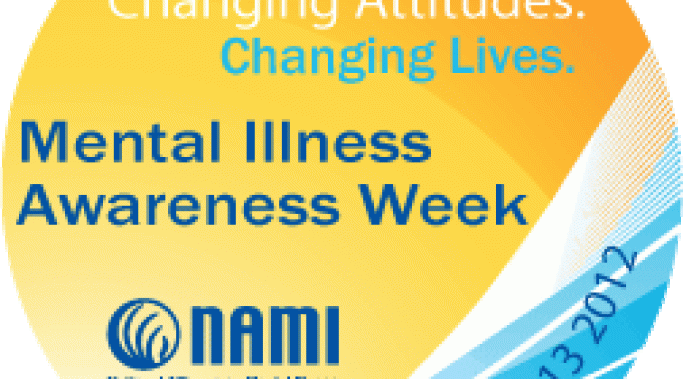I wish someone had asked me before naming a class of drugs “antipsychotics.” I mean, I understand that to psychiatrists it might not be a big deal, but to the medication-taking public out here, let me just say that the stigma around medication is about 10-fold when you say you’re on something called an “antipsychotic.”
Tell someone that you’re on “antipsychotics” sometime and watch them back away slowly. I’m not kidding. It’s like they think an axe is about to magically materialize and you’re about to use it to chop off their head.*
Being Crazy
One of the problems with psychotherapy (and, keep in mind, I like psychotherapy) is that psychotherapists try to look for a cause for every emotion. And this seems reasonable. Or at least it does, to a person without a mental illness.
I’m a mental health writer and I have a mental illness, so, of course, I write about my mental illness. I write about my symptoms and the affect they have on my life. I write about their treatments and their success or lack thereof. I write about what it’s like to have bipolar disorder.
And boy do people feel fine about judging me for it.
Commonly people will say that I don’t have bipolar disorder (being, I’m sure, expert diagnosticians) or say that I’m an idiot (and whatnot) for trying the treatments I have. It’s gotten so bad, in fact, that some things I don’t like to talk about at all. People like to attack me for electroconvulsive therapy and vagus nerve stimulator use specifically. And I don’t like to talk about self-harm, because inevitably people yell about that.
But I learned something earlier this week – not everyone judges people with a mental illness.
I’ve been writing about bipolar disorder and mental illness for nine years. Nine long years of pain and depression and episodes and hyperreality and desperation and description and explanation and exploration. And people still don’t get it. Even if you look at the past year – over 200 articles, there still seems to be nothing but a chasm between the mentally ill and so many of the mentally well.
And I think this is because language is insufficient to express emotional pain and turmoil. We have good words for describing physical pain: radiating, hot, throbbing, sharp, achy and so on. But when it comes to emotional pain we’re “sad.” The same word applies when you drop your ice cream cone on the ground as when you’re so depressed that you can’t get out of bed. It’s not surprising that people don’t get what we’re talking about.
Come out, come out, wherever you are!
Yes, it’s Mental Illness Awareness Week again and if you’re here, at HealthyPlace, you probably already got that memo. But you might be wondering what to actually do to promote mental illness awareness. No art exhibit, educational session or candlelight vigil in your neighbourhood? Don’t worry – anyone can promote mental illness awareness just by talking about mental health.
Sometimes, probably due to my particular experiences online, I think that people will never understand mental illness. There are people who think that mental illness isn’t real; there are people that think that medication is poison; there are people that think mental illness is “all in our heads’” there are people that think that those with mental illness just have to “pull themselves up by their bootstraps.” In short, sometimes it feels like there are so many uncompassionate, ignorant, hateful people that all the writing in the world won’t make a difference.
But the thing is, my experiences aren’t necessarily indicative of the real world. And yesterday’s brunch proved that to me.
We’ve all heard it – the condescending notion that bipolar disorder, depression or another mental illness is “all in our heads.” This is the notion that we are not ill and that we simply think we are ill. If we stopped believing we had a mental illness, we would stop having one. Naturally, this is hogwash. But science and medicine can’t seem to convince people out of this illogical notion (Denial Keeps Those with a Mental Illness From Getting Better). I think that’s because people have their own psychological reasons for wanting to believe that mental illness is “all in our heads.” Mostly, it’s fear.
“I hate wait.” – Inigo Montoya, The Princess Bride
I hate waiting rooms. I know this hardly makes me unique, but I suspect my hatred is more pronounced due to the amount of time I spend in them. Stale magazines. Old furniture. “Art.” Institutional beige walls.
Ick, ick, ick.
I have had chronically on-time doctors and chronically late doctors but no matter what, somehow, in a waiting room, it feels like your life is wasting away.
As you might have heard, last week it was revealed that Jesse Jackson Jr., an Illinois congressman, is in treatment for bipolar disorder. Jackson Jr. has been on medical leave since June 10th and has been diagnosed with bipolar II.
As Candice Crawford, CEO and president of the Mental Health Association of Central Florida in Orlando, says, “People with bipolar II can lead perfectly normal lives.”
I agree completely, but the question is, can they be elected to public office?
It is a sad reality that life is full of things we don’t want to do and mentally-different or no, this is something with which we have to deal.
And it’s even sadder to know that people with bipolar disorder and other mental illnesses have a much longer list of things they don’t want to do than the average person. And, of course, ironically, the mentally ill are typically the least-equipped to deal with such things.
But beating bipolar disorder, or any mental illness, means doing what you don’t want to do, pretty much all the time.

![MP900385750[1]](/sites/default/files/styles/blog_listing/public/uploads/2012/11/MP9003857501-731x1024.jpg?itok=CsQXXT54)
![MP900289528[1]](/sites/default/files/styles/blog_listing/public/uploads/2012/11/MP9002895281.jpg?itok=g9HZCR-S)


![MP900387256[1]](/sites/default/files/styles/blog_listing/public/uploads/2012/09/MP9003872561.jpg?itok=g3_xsZTm)

![MP900390462[1]](/sites/default/files/styles/blog_listing/public/uploads/2012/08/MP9003904621.jpg?itok=HZscWK6h)
